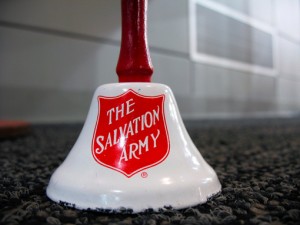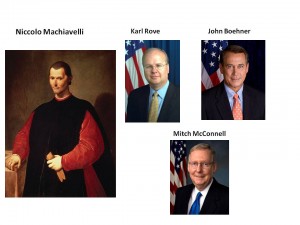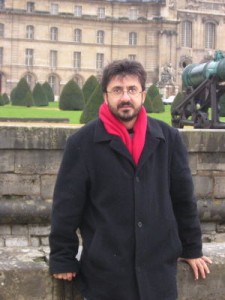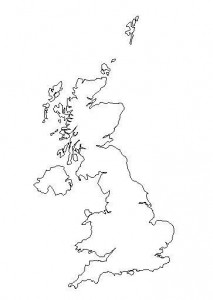 The Paralympics have finished, the euphoria has died down, and the weather is quickly getting colder. After one of the most blistering, enjoyable and exhausting Olympic/Paralympic games in modern history, this small island is fast reverting back to the status quo and hurriedly forgetting this extremely brief diversion.
The Paralympics have finished, the euphoria has died down, and the weather is quickly getting colder. After one of the most blistering, enjoyable and exhausting Olympic/Paralympic games in modern history, this small island is fast reverting back to the status quo and hurriedly forgetting this extremely brief diversion.
In Britain it is September, which means the beginning of the latest education cycle, the end of holidays, and, most importantly, the ‘welcoming’ of some of the most miserable weather in the world. Actually, there is a fairly strong case for Britain to have the best weather in the world: we don’t have devastating and unpredictable earthquakes, we don’t have a monsoon season (despite the hysterical whining whenever it rains), we don’t have OAP-slaughtering heatwaves, we don’t have Arctic blizzards and snowfalls, we don’t have tornadoes, tsunamis, volcanoes, Yetis – nothing. British weather is the most harmless and boring weather a country could ask for, and, as a result, it provides 67% of all conversation topics to a national of people equally harmless and boring.
Talking about ‘Britain’ and ‘Britishness’ falls into a number of complications these days. ‘Britain’ no longer means ‘people of the British Isles’ (which includes Ireland); indeed, people aren’t sure what it means, or whether it means anything at all. Everyone worldwide can accept the absolute uniqueness of Ireland, its culture, its language, its lyricism, its accents, its humour, its David to the British Empire’s Goliath, and the Irish are highly respected for it. As for the six counties in the north that the British government still forcibly rules over, that’s a situation that will be resolved (albeit with great difficulty) within the next few decades, and the island of Ireland will be united and free for the first time since 1169. That leaves the island of ‘Great Britain’, that backward-L-shaped rock floating off Western Europe.
It’s this island that Americans like to call ‘England’, and, be very sure, this is a very offensive term to use. It’s also incorrect: England is one of the four nations that make up Britain, along with Wales and Scotland (and Northern Ireland). To call Britain ‘England’ is to stir powerful feelings of anti-Britishness, as the people of Scotland and Wales will fiercely proclaim that they are their respective country first and British second. Even people from England will point out that the Welsh and Scottish are most certainly not English, though they might be British. But let it be clear, Elizabeth Windsor is not the ‘Queen of England’, David Cameron is not the ‘Prime Minister of England’, and any other synonymous use of ‘England’ for ‘Britain’ is extremely annoying to the people here; it’s the equivalent of calling all Americans ‘Yankees’, whether you come from New York, Baton Rouge, Seattle, Honolulu or San Juan, which is a much milder mistake but still ignorant and incorrect. And annoying.
So what’s the difference between Scotland and Wales and ‘Britain’? Well, Scotland and Wales acually have distinct and natural cultures. Everyone knows what Scotland has: bagpipes, golf, haggis, kilts, beards, impenetrable yet hilarious accents, Trainspotting, and lots of other, less stereotype-y things – all beautiful, unique qualities. Wales (that small sticky-out bit on the middle-west of Britain) is a land of incredible scenery, music, industrial struggles, intelligence, the original language of England before the Romans forced it west, and, of course, Batman. In both the Welsh and Scottish devolved parliaments exist nationalist parties: Plaid Cymru in Wales has nearly a quarter of all Welsh Assembly seats, while the Scottish National Party has governed Scotland since 2007. So these two countries within Britain (along with Northern Ireland), have their own proud national identities.
Let’s break ‘England’ down. On the small peninsular that juts out on the southwest of the island is Cornwall, a county that has more in common with the Gaelic countries of Wales, Scotland and Ireland that it does with England, and this is reflected in the popular revival of the Cornish language as well as the growing strength of the Cornish nationalist party (Mebyon Kernow) in local government. In my article about the Olympics, I made numerous references to the ‘North’ of England – this is the entire portion of England that lies between Scotland and about fifty miles north of London (if you want to look it up on a map, anything level with and above the city of Birmingham is a good estimate). It includes the great cities of Manchester, Sheffield, York, Newcastle, Liverpool and Hull, and while places further south such as Derby and Nottingham would place themselves in ‘the midlands’, culturally and linguistically they are closer to the rest of the North than to the south of England. The North of England has been ravaged, neglected, abused, discriminated against, scorned, mocked and devastated since the time of William the Conqueror, and Northerners are typically and hatefully held up in the national press as being lazy, stupid, fat, workshy, ‘scroungers’ (i.e. on welfare), and generally worthless, bordering on sub-human; very similar to the way African-Americans are abused by politicians and the media in the US. The North has always had the least government investment, the least governmental and economic representation, the lowest life expectancy, the greatest amount of racial, homophobic and misogynistic strife, all because they are poorer and talk with different accents than people from the south. When the national media talks of ‘England’ and ‘Englishness’ they do not include anything to do with the cities, cultures and peoples of the North. So what does that leave? England/Britain has been cleft into many parts: Ireland, Wales, Scotland, Cornwall and the North of England. What’s left is London and the counties, cities and towns within a fifty- to seventy-mile orbit.
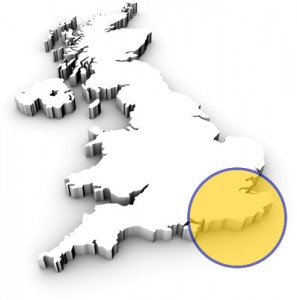 This is the rich part of the country, the Westchesters and Nassau Countys of Britain, and, not coincidentally, the unmoveable electoral base of the right-wing Conservative Party. This is the country referred to by the press, and by various ‘cultural’ representations of England/Britain at international events, such as the Olympic ceremonies. And it’s an England/Britain devoid of everything: charm, detail, distinction, artistry, creativity, uniqueness, and personality. All art and music, all great individuals and achievements of the people of these islands, has been vacuumed, re-appropriated and sold on by the landowners, aristocrats and other fabulously wealthy non-entities who live in this part of the country for their own gain, and for the creation of the myth of ‘England’ and ‘Britain’, two words that describe places and people as real as Atlantis and Martians. This hegemony has forced the millions of people from Glasgow to Truro, Belfast to Middlesbrough, Cardiff to Carlisle, to live their lives as if such countries existed, as if Scottish or Welsh culture can be both distinct from and analogous to ‘British’ culture.
This is the rich part of the country, the Westchesters and Nassau Countys of Britain, and, not coincidentally, the unmoveable electoral base of the right-wing Conservative Party. This is the country referred to by the press, and by various ‘cultural’ representations of England/Britain at international events, such as the Olympic ceremonies. And it’s an England/Britain devoid of everything: charm, detail, distinction, artistry, creativity, uniqueness, and personality. All art and music, all great individuals and achievements of the people of these islands, has been vacuumed, re-appropriated and sold on by the landowners, aristocrats and other fabulously wealthy non-entities who live in this part of the country for their own gain, and for the creation of the myth of ‘England’ and ‘Britain’, two words that describe places and people as real as Atlantis and Martians. This hegemony has forced the millions of people from Glasgow to Truro, Belfast to Middlesbrough, Cardiff to Carlisle, to live their lives as if such countries existed, as if Scottish or Welsh culture can be both distinct from and analogous to ‘British’ culture.
It’s an identity crisis that is only very recent, yet ages overdue. Wales, Scotland and Ireland were invaded, pillaged and annexed by the ruling classes who lived in London for centuries, and they softened this submission by reassuring these populations that all their efforts would serve some kind of greater good by making up a new country for them altogether, ‘Britain’, an entity that has never been properly explained or understood for the last 500 years and that has no modern equivalent fabrication; there is no supranational entity legally covering all Germans in the countries bordering Germany, nor do Venezuelans and Ecuadorians see themselves as ‘Gran Colombians’ as well as Venezuelans and Ecuadorians. Yet not only does such a childish imaginary ‘nation’ exist, but it is accorded the same status as actual nation states by the rest of the world, of whom no one bothers to draw attention to the absurdity of it all.
And as the bewildered and largely apathetic reaction to the Olympics has shown, the people of ‘Britain’ are finding this dissolution of an imaginary identity rather difficult to digest. Can’t anyone put us out of our misery and say what needs to be said: that ‘Britain’ is an entirely fictitious place with a history and culture based on the forced assimilation and acquisition of the histories and cultures of dozens of different peoples, and that it’s time we grew a backbone and started challenging this Dark Ages-era situation?
A Real Imagined Community,

